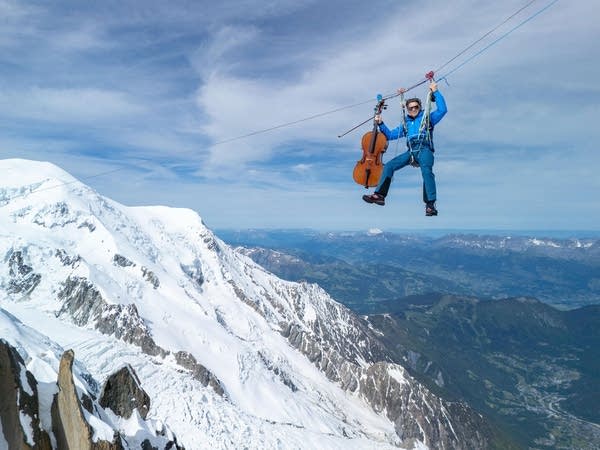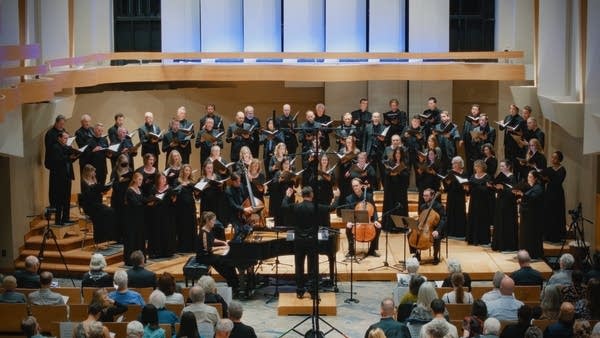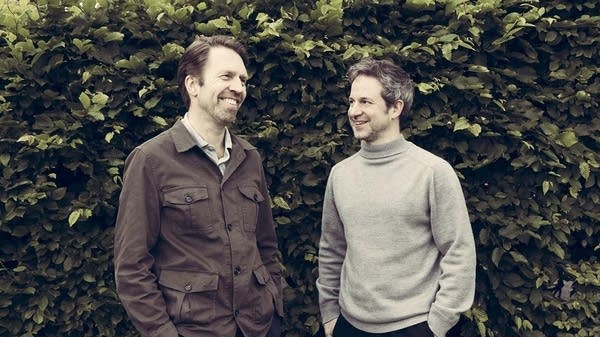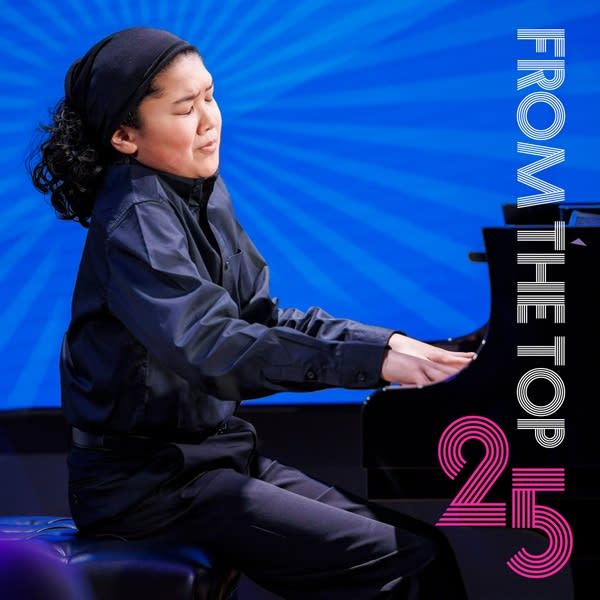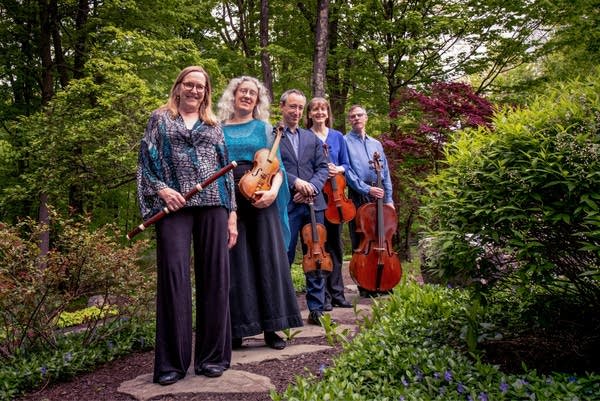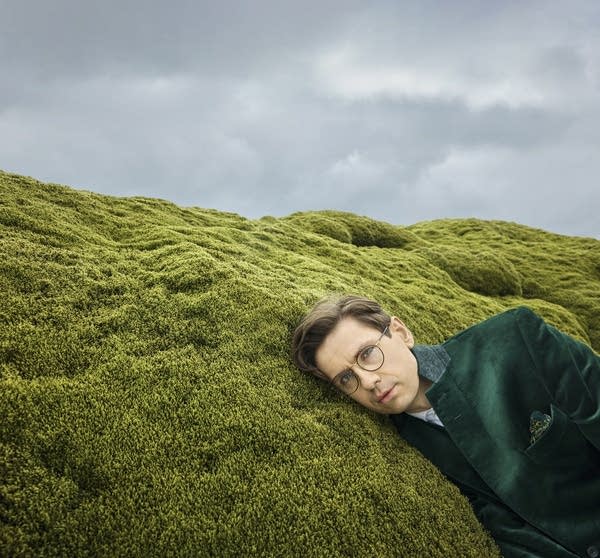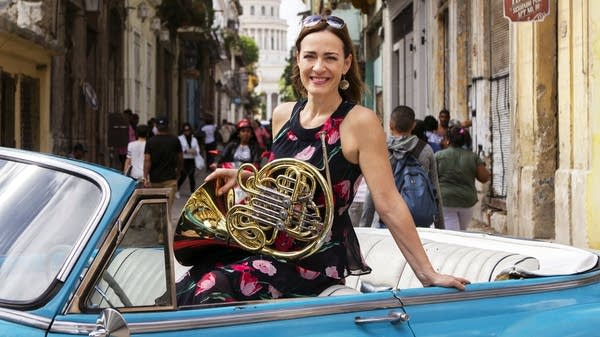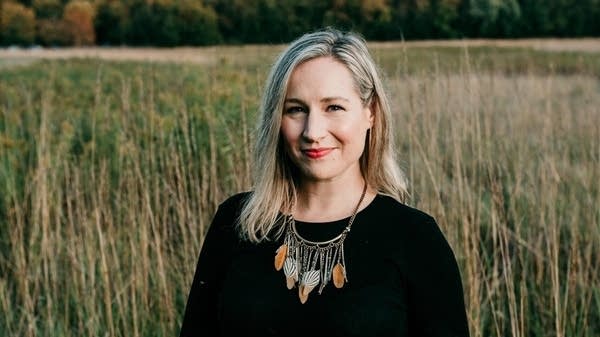Yolanda Kondonassis/Gil & Orli Shaham/Jason Vieaux - Ginastera – One Hundred (Oberlin Music) Oberlin Orchestra/Raphael Jimenez
"I think in some ways, Alberto Ginastera has been a little bit under-celebrated," says harpist Yolanda Kondonassis, "especially given what he managed to do. And I think a centennial year is a wonderful time to remind folks who do know of his work how terrific he was and to introduce audiences who may not know of him to a wonderful, brilliant composer."
Ginastera – One Hundred: that's the title of a new project by Kondonassis which celebrates one of the most important South American composers of the 20th century.

"I think what he managed to do was combine folk elements of his traditional background, things like Argentine dances and the Tango and the Malambo and to integrate that into music that was really beautifully structured, architecturally sound and very much pushed the idioms forward," Kondonassis says. "And I think with Ginastera's music, he also did what Bartók and Dvořák were able to do, which was to write music of such great substance that pushed the field forward, but at the same time is very, very listenable. It's catchy, it's interesting, it's deep, it's thought provoking. But at the same time, when you hear his music, inevitably you want to hear more. And that's a bit of a musical miracle."
Yolanda, you're the executive producer of this recording, which also features works for piano, violin and guitar. Would you say his harp concerto was kind of the starting point for you?
"I would say it was. Because a couple years before the centennial year of 2016, I started thinking of ways that I might both celebrate him and express some of my gratitude for this concerto that's really been the cornerstone of my solo career. I counted up that I've performed this piece live almost 200 times. And in addition to that, I feel like this music was very, very important in steering me towards the harp at a pretty critical juncture when I was choosing between the piano and the harp. And when I saw this piece, I remember thinking, 'Gosh, this is some red meat.'
"And this concerto really gave me almost a platform of stepping out of the box a little bit and expressing a wider spectrum not only of emotions but just of what the harp can do, what the idiom is capable of. And for that, I felt like I owed him a pretty good celebration of his life's work.
I know he was trying to do something that was both folk influenced and also modern. I was reading that he makes use of a chord that's built entirely on 4ths … is there a way you could explain that a bit?

"Sure. Every work on this album all use something that is known as the 'gaucho chord.' And that is essentially — the six strings of the guitar that's six pitches all separated by the interval of a fourth. But I think everyone knows that sound of a guitarist tuning up, just strumming from one string to the next, all six strings. And I've often said that if he was a painter, that gaucho chord would be in the bottom-right-hand corner of every canvas. That's [Ginastera's] way of tipping his hat, I think, to his own Argentine culture. And the gaucho also was very meaningful. The gaucho in Argentine culture represents bravery, kind of a rugged individualism. You can picture the Argentine gaucho galloping across the pampas, the rural plains of Argentina. And in many ways that gaucho chord represents the Argentine spirit for him."
Now I know Ginastera traveled to the U.S. in 1945 to study with Copland. Where do we hear Copland's influence in Ginastera's music?
"You know, that's a really, really good question because it's so easy to hear the influence of some of his other mentors like Stravinsky. You really hear that in a lot of his music. And you also see a lot of influence of Bartók, and that folk-contemporary fusion. And Copland, I think, was a great influence to him in that openness, that style of creating almost a national style. In many ways, Ginastera was to Argentina as Copland is to America."
Putting a recording like this together required a lot of careful coordination between the guest artists, and musicians, and the additional research which included a thoughtful conversation with Ginastera's daughter. Yolanda says in the end, she couldn't be happier with the way everything came together.
"And I've often said that the universe was kind of on my side in putting this album together," Yolanda says, "because along the way, there were so many little signposts that told me, 'You know, this project really wants to happen.' That should not have been that easy. Whether it was interviewing Georgina Ginastera or gathering people like Gil Shaham and Orli and Jason Vieaux … you know, getting wonderful historical photos or whatever it was … it felt like there was serendipity in this."
That's Yolanda Kondonassis expressing her gratitude to a composer who not only impacted her career, but 20th century music writ large.
Resources
Yolanda Kondonassis - official site
Love the music?
Show your support by making a gift to YourClassical.
Each day, we’re here for you with thoughtful streams that set the tone for your day – not to mention the stories and programs that inspire you to new discovery and help you explore the music you love.
YourClassical is available for free, because we are listener-supported public media. Take a moment to make your gift today.
Your Donation
About New Classical Tracks®
Host Julie Amacher provides an in-depth exploration of a new classical music release each week.
Subscribe on Apple Podcasts, TuneIn, Radio Public, or RSS.

